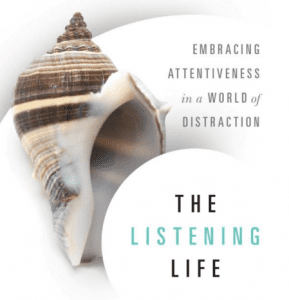When English teachers turn to writing — turn away that is from their mounds of grading — I tend to find something to read. Why? Because they know what they are doing when putting pen to paper (or finger to key). I find this true in Darryl Tippens, now Provost at Pepperdine, in his book Pilgrim Heart. Today I want to whet your appetite (and body! — read on) for his ideas.
I will have this quotation below again, but what do you think of this statement by Tippens about the impact of Christian love on his own conversion? “Though their theology may have been thin in places, they were Christ to me” (23). Can you think of those who were “Christ to you”? Or the impact of real lives? Or the impact of “not being Christ” on others? How are you and your community “embodying” grace? Do the normal list of spiritual disciplines promote an individual spirituality? (How so?) And what kind of disciplines are more communally focused?
Tippens introduces us to an embodied spirituality, an incarnational Christian life, and an ecclesial vision for spiritual disciplines. Now, if that doesn’t interest you I’m sorry. I’m pumped about these themes.
“Too many discussions of spirituality,” Tippens contends, “emphasize the private and interior dimensions, neglecting the richly embodied and communal nature of life in Christ.” To slightly paraphrase, “An incarnational spirituality requires us to consider how our bodies and our placement within vibrant communities are necessary aspects of our calling.”
We live in a day of spiritual disciplines — where we emphasize private disciplines as the path to spiritual maturation; Tippens probes in this book for a new perception of spiritual disciplines as communal, embodied disciplines. Let emphasize this: I see here a new perspective on spiritual disciplines — in which we see them not only as personal but also corporate. “Our ministers may be highly degreed, our staffs highly specialized, and our worship services elegantly orchestrated; but these are insufficient if we are not also actively engaging in the basic communal practices that are known to transmit spiritual memory and transform lives.”
In chp 1, Tippens summons us to a “worldly” spirituality. He tells the sad story of Emily Dickinson who delighted in written letters. Why? “A letter always seemed to me like Immortality, for is it not the mind alone, without corporal friend?” Ouch … what a claim she makes here. She’d prefer the letter so she didn’t have to put up with the body — the other, the person. I found this quotation powerful — and sad.
Sadly, some have a spirituality like this, and Tippens charts some of his own growth from such a spirituality into an incarnational spirituality. Some think of spirituality as something they do all alone. Is that biblical?
In reflecting on his own conversion, he suspects that it was the “sheer kindness of Jesus’ followers that had the greatest impact of all.” I like this one: “Though their theology may have been thin in places, they were Christ to me” (23).
Jesus calls us to take a journey — in our bodies — and he calls us to do this together — as embodied fellow travelers. This is what the church is. Tippens points out in chp 2 that we are prone today to develop a spirituality that is “too spiritual”. We are called to following Christ in our bodies — with other bodies — in the here and now.
Next week: Emptying.















